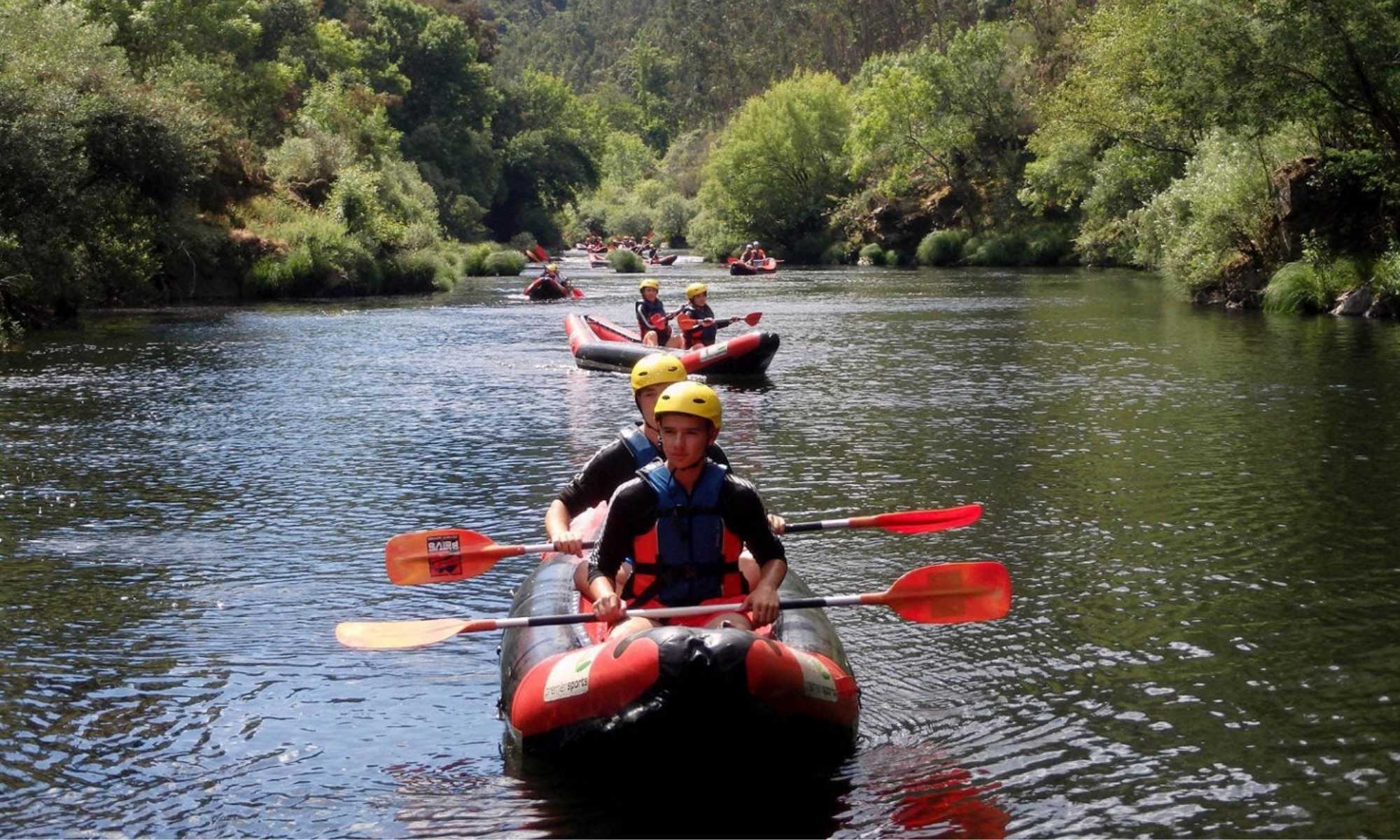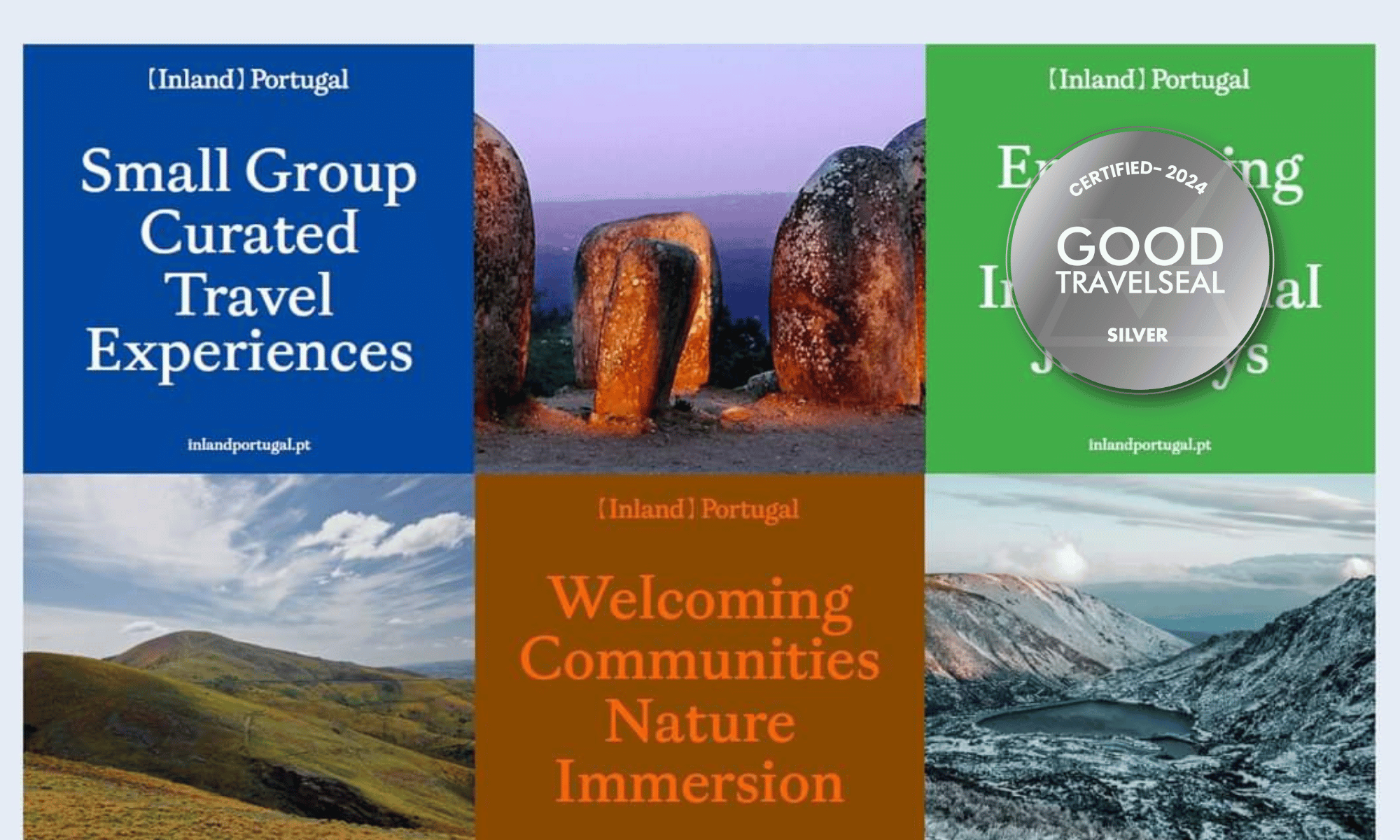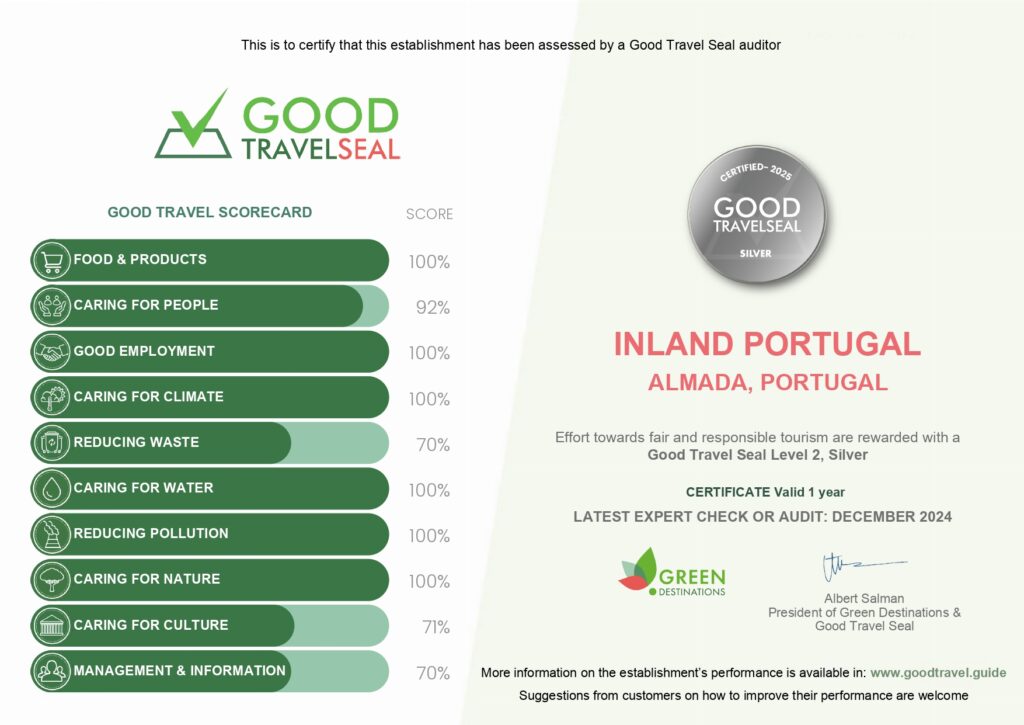Portugal

History, culture, and nature in perfect balance.
Portugal has an exceptional range of well-protected landscapes and nature areas, lots of leisure activities, and an overwhelming cultural heritage, where tradition and modernity blend together. Its cuisine, fine wines, and hospitable people, make this a great destination for the responsible traveller. In March 2019, Portugal won the Best of Europe Award for sustainable tourism at ITB Berlin, the world’s leading tourism fair.
Not sure where to go?
Explore the options for a responsible trip
GOOD PLACES TO VISIT
Explore destinations that were awarded or recognised for their sustainability efforts
GOOD TRAVEL BUSINESSES
Discover accommodations, restaurants, shops and activities that are committed to sustainability. Their efforts are summarised in a SCORECARD (click on the picture). For the Good Travel Seal, the higher the number of stars or the level (level 3 is the highest), the more aspects of sustainability are checked by an independent auditor.
- Activities
(expired) Clube do Paiva
GTS 2 Star
Clube do Paiva was born in 2003 and since this date is the reference of Rafting in Paiva River. We used to be called The River Experts. Since 2015 we have developed summer activities like Canyoning, River Trekking and Canoeing.
All of our activities are adaptable to children from 5 years old and people with special necessities.
Based in Alvarenga in Arouca, we are situated in a Mundial Geopark of UNESCO and work to improve sustainability.
Inland Portugal
Good Travel Seal Level 2
Small Groups Curated Travels Inland Portugal, away from the crowds. Landscapes, Artisans, Communities, Farms, Manufactures, Culture, Heritage
PROMOCODE: GTG24INLAND
GOOD PRACTICE STORIES

Get inspired with stories from places and people that are acting for a fair and responsible tourism
Águeda
The migratory fish, fauna and flora of Agueda river are threatened and the degradation of terrestrial and aquatic habitats is urging the authorities to take action. To face these challenges, Life Agueda project , co-financed with the European life program was launched , aiming to (re)naturalize sections of the rivers and restore habitats. The project promotes biodiversity and community engagement through leisure, sports and nature tourism. Tourism is enhanced with improved, inclusive and accessible trails. It also fosters education with volunteering, workshops and learning centers. The Águeda River becomes a living classroom, teaching us the value of sustainable coexistence with nature.
Alto Minho
Alto Minho is renowned for its natural beauty and is a popular destination due to its potential for sea and river activities. Despite its four nautical centres (canoeing, rowing, sailing, and surfing) and rich maritime heritage, these assets were not fully utilized. The pandemic revealed significant challenges: business owners struggled to collaborate, lacked marketing resources, and depended heavily on word-of-mouth promotion. Additionally, it became clear that businesses needed to enhance their operations through certification and capacity building. Given Alto Minho’s existing Nautical Station, CIM Alto Minho recognised an opportunity to unite businesses, promote their products and services, and provide tools for competitiveness.
Amarante
Despite its cultural richness, Amarante lacked events for young people. In response, HÁ FEST was created in 2015 to fill this gap. The festival offers an inclusive platform for youth to participate as spectators, artists, and organizers, with partnerships with art schools, community organizations, and local artists. Each edition addresses a theme, such as animal causes, bullying, mental health, or healthy eating, to raise awareness. HÁ FEST has enriched Amarante’s cultural offerings and inspired its youth and community.
Arouca Geopark
Aware of the potential of the Paiva river, rafting lovers, coming from all over the country and even from other European countries, traveled to Arouca to enjoy the whitewaters they found here. Nowadays, rafting justifies the existence of adventure sports companies and several jobs, complemented with the practice of other nature and adventure activities such as canyoning, canoeing, hiking, mountain biking or orienteering. Referring to good practices to combat seasonality, we found that the realization of events and activities in low season is a good strategy for the distribution of visitors throughout the year. Given that rafting requires a considerable river flow for its realization, this is a winter practice, and a good support for the decrease of seasonality.
Azores
The Lagoa do Fogo area is one of the most amazing and beautiful places in the Azores. That said, we were facing a problem of cars congestion in this area, with many rent-a-cars parking over protected places just to get to the spot. To address this situation, in 2023, the regional government of the Azores forbidden the passage of rent-a-cars to the top of the mountain, and initiated a shuttle service, that is free for residents and has a price of 5€ for tourists. The shuttle operates on a hop on/off model, to ensure passengers have ample time to explore Lagoa do Fogo. In 2023 over 40 thousand tickets sold.
Celorico de Basto
Aware of the need to preserve the natural beauty that surrounded them, the inhabitants of Celorico de Basto came together to promote environmental conservation and the appreciation of their local culture. Thus, the Camellia Festival was born, an annual celebration dedicated to the preservation and promotion of these magnificent flowers and the environment that sustains them (their gardens). The festival was not only an opportunity to admire the beauty of camellias, but also a space to raise awareness in the community about adopting more sustainable good practices.
Loulé
In 2014, as a result of reflection on the high number of tourists visiting the Municipality of Loulé, mainly in the sun and beach tourism segment, it was found that tourists end up only visiting the coastal area of the municipality. In this sense, there was a need to create tourist experiences that would allow visitors to have an experience of getting to know the territory and local traditions. Therefore, inspired by Greg Richards’ work on creative tourism, the municipality began contacting several local partners, with a view to developing a diversified creative tourism program, so that tourists can have an immersive experience in the territory. Over the last 10 years, 600 activities have been developed with 2900 participants.
Matosinhos
Matosinhos innovated and differentiated itself by repurposing its economic strategy in the last decades from purely fishing and canning industry to appreciation of industrial heritage and gastronomy around the fish.
Montalegre
The traditions in Montalegre, dating back to centuries are at risk, due to migration of the youth and the influence of globalization. In the face of this significant challenge, Friday the 13th event was born , where stories and legends are shared. It has grown into a major festival blending people’s culture with modern challenges, transforming the village into a cultural and community spirit tourism attraction.
Ponte de Lima
Ponte de Lima began launching a series of daily challenges online, inviting people of all ages and backgrounds to participate. From local school students to community members, everyone was encouraged to get involved. And the reward was simple: the City Council joined in, promising €1 for each tree planted. The project started in a small parish starting by identifying what was harming the local ecosystem and removing what was negatively affecting it and, in its place, planting native trees, respecting the region’s biodiversity. In this way, they gave life to a forest with native plants and, in return, the owners had their land cleaned at no cost, as the protected area took care of cleaning and maintenance.
Sintra
Urbanization, climate change and labor shortage are the main challenges facing the Colares vineyards in Sintra. Faced with the threat of losing their viticulture heritage, the local authorities and producers unite to find a solution adopting a sustainable approach , developing sustainable agricultural practices and investing in research and development to include modern techniques. These solutions ensured that Colares wine is conserved, remaining true to its tradition while developing wine tourism to captivate wine lovers worldwide.
Sustainability
Portugal has a strong commitment to Sustainable Tourism which is the main focus of the National Tourism Strategy 2027. The “+ Sustainable Tourism Plan 20-23” , recently launched, is also an important tool to stimulate circular economy, carbon zero and a responsible recovery in tourism sector.
The Portuguese “Green Destinations” here presented are important stakeholders to reach Portugal’s sustainable goals.
Travel tips from our editors
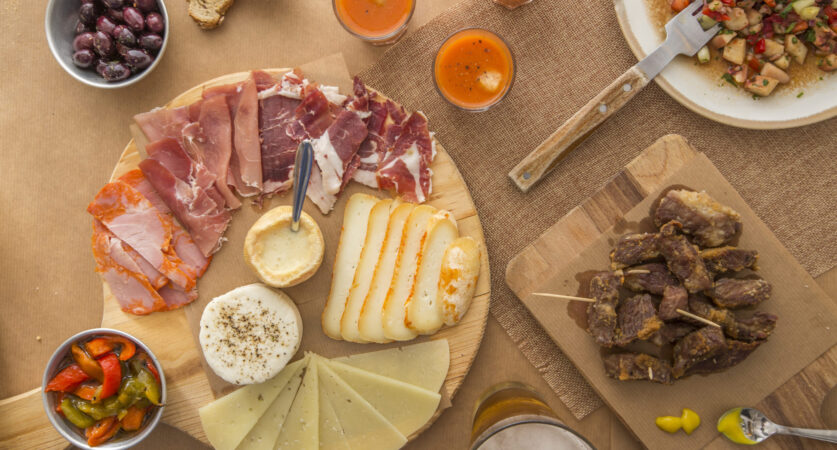
Getting there
In mainland Portugal, main towns and cities are well connected by trains and coach services.
By car there are two types of motorways: the traditional motorways with toll booths and those with an exclusively electronic toll system.
By rail: CP (Portuguese railways) offers train services from Vigo, Madrid and Paris.
By coach: International routes are operated by Eurolines, Internorte and FlixBus.
By air: Airports all over the country facilitate international connections. Don’t forget to offset your carbon footprint if you choose to travel by plane.
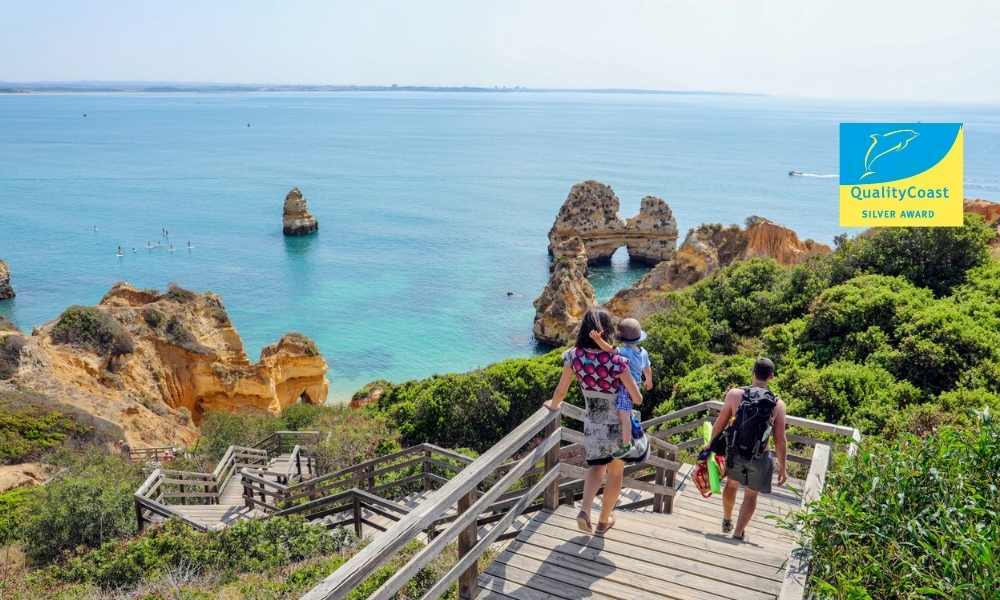
Waste separation for recycling
For separate waste disposal, remember this color code: GREEN bin for glass, BLUE for paper and cardboard, YELLOW for plastics and metal, RED for batteries and WHITE for reusable clothing.
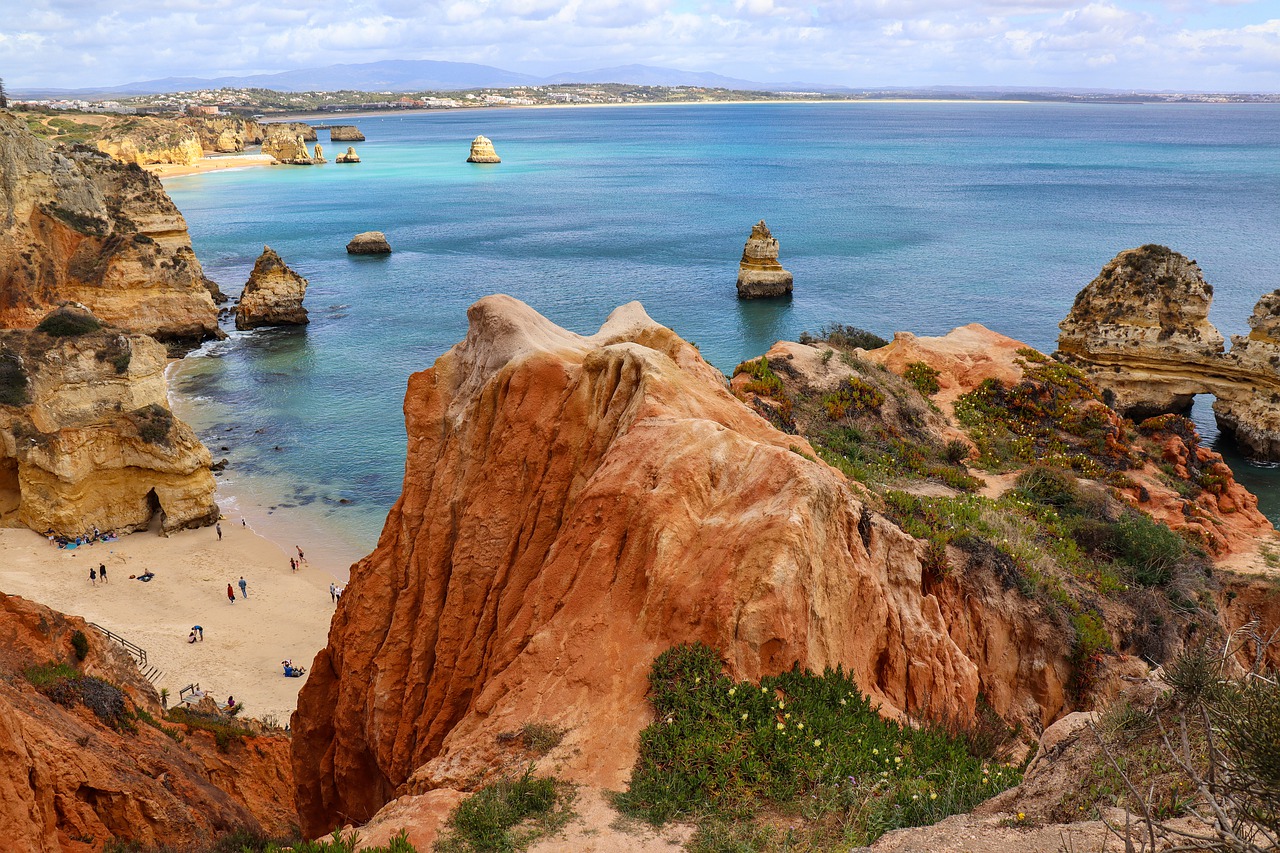
Religious celebrations
Portugal is rich in religious local celebrations, they are precious and deserve our full respect. These are not events created for tourists, so apart from Carnival, please do not interfere. However, if there is a market connected to a celebration, this is your opportunity to buy the best local products available in the region.
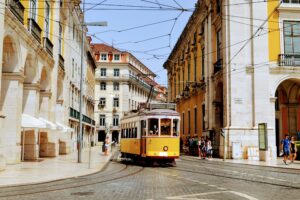
Hot or busy in Lisbon?
Lisbon offers you some nice day trips. You can take a local ferry from Cais do Sodré to Casilhas, crossing the Tejo river and offering wonderful views towards the capital. For day trips, consider the train to Sintra’s lush woodlands and romantic cultural heritage; the beaches of Cascais; or to taste great wines in Torres Vedras. Plan ahead to experience your green holiday in Portugal to the fullest!
Tourism & People
Portuguese people are genuinely friendly and hospitable and human rights are very well respected in Portugal. In the pandemic situation that we live since march 2020, the tourism sector is all mobilized to provide the sanitary security requirements through the adoption of the Clean and Safe Stamp. Portugal was the first country in Europe to get the “Safe Travels” Stamp from WTTC, recognizing our commitment with providing safety for all.
Nature & Wildlife
Portugal’s natural landscapes are as diverse as they are beautiful. From the rugged coast of the Algarve to the lush forests of Madeira, the country offers a rich tapestry of ecosystems. The Douro Valley is renowned for its terraced vineyards, and the Azores boast volcanic craters and vibrant lakes. Birdwatchers can spot various avian species, and the Ria Formosa Natural Park is a haven for flamingos and other wading birds. Portugal’s commitment to conservation shines through the array of protected areas and reserves, ensuring that its unique flora and fauna continue to thrive.Whether you’re hiking in the Peneda-Gerês National Park or exploring the cork oak forests of Alentejo, the country’s natural beauty is a treasure to behold.
Sustainability Recognitions
Brazil has 9 destinations featured in the Top 100 Sustainable Destinations 2021.
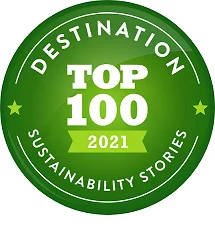
Other sustainability certifications can be seen here (English) and here (Portuguese).
Luís Araújo
President of Turismo de Portugal
Turismo de Portugal, the national authority for tourism, is committed to proceed a path of Sustainability, helping our stakeholders – private and public – to implement the best practices in order to preserve our natural and cultural values, to reach a balanced development for communities and business and of course, to provide an authentic and unique experience to all tourists.
This commitment is also reflected in several initiatives that Turismo de Portugal has taken at European and global level: we recently joined Global Sustainable Tourism Council (GSTC) and the Portuguese Plastics Pact and we maintain an active participation in the World Travel & Tourism Council (WTTC) and in the presidency of European Travel Commission (ETC).
Our purpose remains: to make Portugal one of the most competitive, safe and sustainable destinations in the world.
Visit other destinations nearby?
Get in touch
Support
We are a multicultural, creative and dedicated team working to promote sustainable tourism. Join us in our fight against the climate crisis, single-use plastics and over-tourism!

